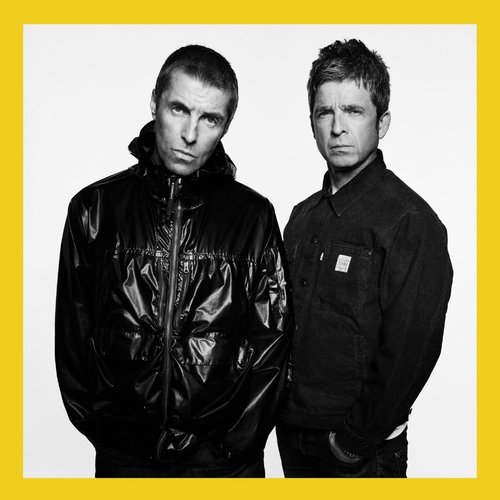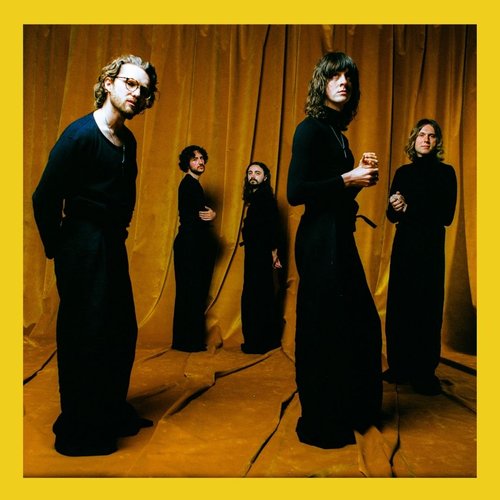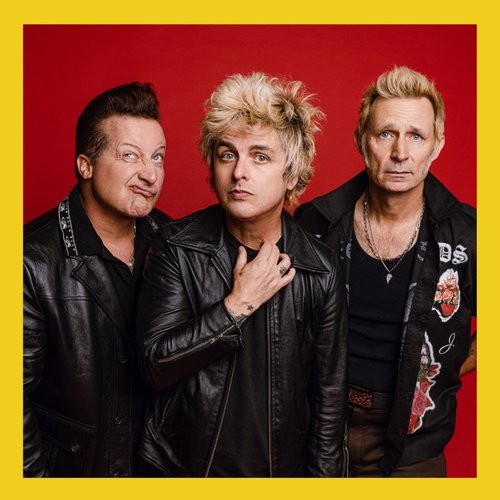How Paul Weller wrote The Jam's Town Called Malice
29 January 2025, 19:00
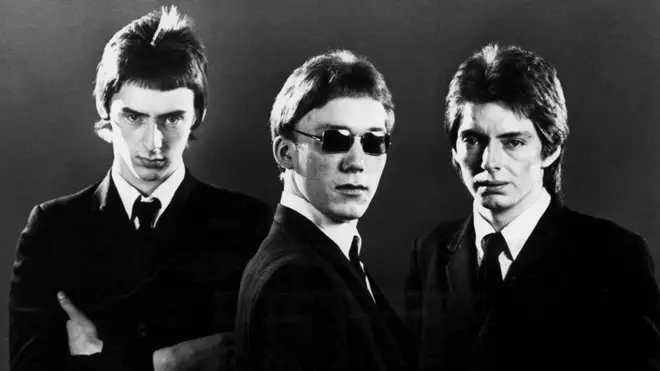
The trio's classic single topped the UK charts in February 1982... but the feel good tune tells a darker story of Britain, politics and unrest.
Listen to this article
"There's no real energy in music any more, there's nothing happening in England, people are getting very apathetic again." - Paul Weller on French TV 1982
Town Called Malice was the third of The Jam's four UK No 1 hits, topping the charts for three weeks in February 1982. It's an eternal radio favourite, a feel-good hit. It's now known for soundtracking a key moment in the film Billy Elliott, with its pounding beat and organ-driven groove. In short, it's a classic.
But like a great many of Paul Weller's songs, Town Called Malice tells a dark story. It's a tale of politics, the loss of community and deprivation. It's as much of its time as the brooding Ghost Town by The Specials, released six months earlier. And, significantly, Town Called Malice signalled the beginning of the end for The Jam.

The Jam - Town Called Malice (Official Video)
The Jam formed in Working, Surrey in the early 1970s around singer, guitarist and songwriter Paul John Weller. After working with numerous musicians, by the middle of the decade the line-up had settled down to the core of Weller, bassist Bruce Foxton and drummer Rick Buckler.
The trio loved the style and attitude of the 1960s youth movement and transplanted it to the late 70s, taking the anger and energy of punk as inspiration. When The Jam had their first hit in April 1977, frontman Paul Weller was just 18.
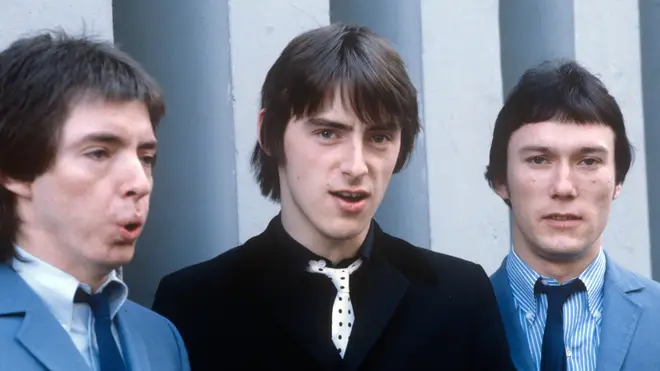
Despite huge success - all 18 of the band's original singles made the UK Top 40 - Weller had become constricted by the trio's format and felt his songs needed to be augmented in some way. "We'd been a three-piece for years," he told The Guardian in 2012. "There are only so many variations on the guitar/drums format. So, rightly or wrongly, I was getting into brass sections and female vocals and keyboards and trying to expand our sound."
The fifth Jam album, Sound Affects, had been released a year earlier and spawned the No 1 hit Start! For the follow-up, Weller and the band entered AIR Studios in London's Oxford Street to work on the follow-up with producer Pete Wilson.
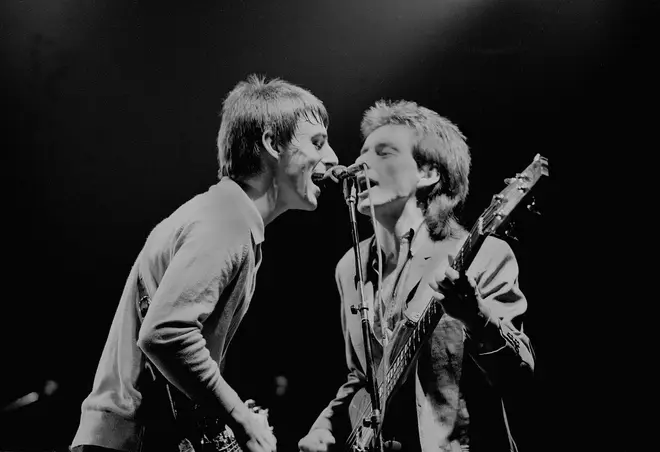
It was a heady time for The Jam - AIR was owned by former Beatles producer George Martin and the Woking lads found themselves in the studio next door to Paul McCartney. When the band played a short tour before Christmas 1981, fans were treated to a handful of new songs - one of which was called Town Called Malice.
The title is a pun on Nevil Shute's 1950 novel A Town Like Alice, which concerns a couple who move from post-war England to Australia, but Weller later claimed he'd never read it.
Instead, Weller's lyrics reflected the social upheaval that had blighted the UK in the summer of 1981. The country was three years into Margaret Thatcher's Prime Ministership, the recession had started to bite, key industries were beginning to be closed down and unemployment passed the 2-and-a-half million mark for the first time in 50 years.
In April, riots broke out in Brixton over the police's heavy-handed attitude towards black youths, and similar disturbances sprang up across the country. Against this backdrop, the establishment celebrated the wedding of Prince Charles and Lady Diana Spencer and the privatisation of some of the country's key assets began, including the selling off of British Telecom.
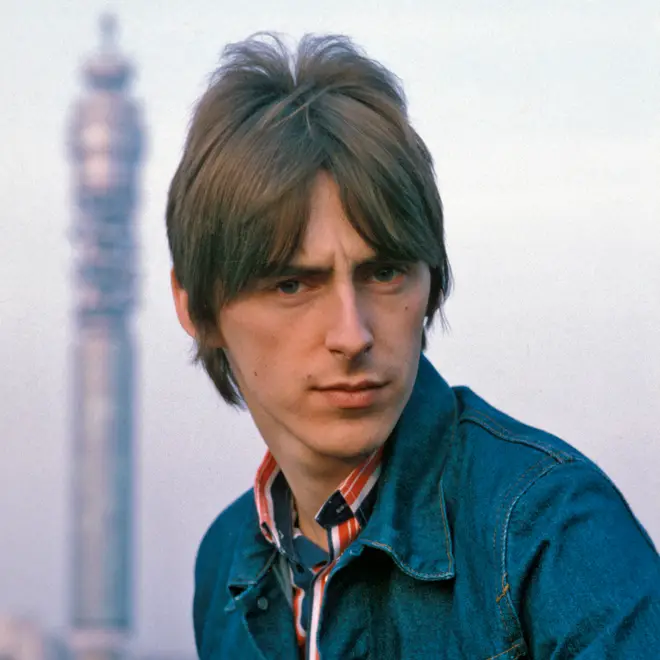
"There was a phoney pretence that we could suddenly all be middle class because we were allowed to buy our own houses, get a mortgage and be in debt for the rest of our lives," Weller recalled in the book Suburban 100 - Selected Lyrics. "I was trying to capture a sense of the anger that I felt - that a lot of people felt - about Thatcherism and the way that she and the Tory Party at that time were trying to dismantle the communities of the working classes."
The lyrics of Town Called Malice contrasted the ambition of the new middle classes with the grim reality of living in the 1980s: "Better stop dreaming of the quiet life - cos it's the one we'll never know."
Weller's birthplace Woking was a classic "commuter town", 23 miles out of Central London and a Conservative safe seat. But not everyone that lived there could afford the suburban life.
He said of the lyrics: "They're partly about Woking, where I grew up, which had always been a depressed place in a way.
"That line 'rows and rows of empty milk floats dying in the dairy yard' was directly influenced by Woking, where there was a milk yard. The 'ghost of a steam train; is about my childhood, because we lived close to the station, and I could always hear the trains shunting about at night.
"Even before the 80s, a lot of people were living hand to mouth. I remembered my mum and dad: I don't think the swinging 60s ever hit Woking. They were forever rowing about not having enough money.
"Those suburban images were very strong in my mind, and a lot of people connected with it.
"Whether they are absolutely true doesn't matter, they stand as metaphors for what I saw going on."
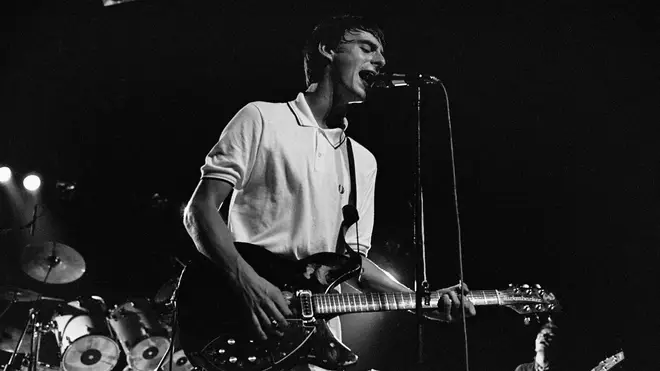
"If we ain't getting through to you, you obviously ain't listening!" - flash frame in the Town Called Malice video
The sound of Town Called Malice came from Weller's burgeoning interest in soul and disco music. "I suppose the overall sound/effect is quite soul-influenced, but not necessarily Tamla Motown," he said in a Jam fan club newsletter. "I really wanted to try and create a 1980's brand of soul."
In fact, one of the key records of the era for the Jam frontman was Michael Jackson's 1979 Off The Wall, a disco classic.
Bruce Foxton, meanwhile, was inspired by the 1966 hit for The Supremes, You Can't Hurry Love. Its nimble bassline can be heard in Town Called Malice.
Polydor A&R man Dennis Munday, who worked with The Jam throughout their career, noted: "Paul was never happy with the pace of Malice, preferring to play it at a slower tempo, which he was able to do much later."
For Munday, Weller had a point to prove with the new album, which was titled The Gift. "I can remember being at AIR London and listening to a playback of The Gift. Paul definitely wasn't happy, Thinking it was their final album - and he almost certainly knew that - maybe he thought, 'I want it to be the best'."
The Gift features additional musicians - producer Pete Wilson plays keyboards on a number of tracks and there's a brass section - while the song Precious is heavily influenced by disco, with a funk bassline. When the song appeared on 29 January 1982 coupled with Town Called Malice as a double 'A' side, it was clear that The Jam were heading away from their mod/punk roots.

The Jam - Precious
Weller's drive for new sounds would spell the end for The Jam. Town Called Malice/Precious went straight into the UK charts at Number 1 on Tuesday 9th February and stayed there for three weeks (much to the consternation of rival label EMI, whose act The Stranglers were stuck behind The Jam at Number 2 with their single Golden Brown).
The Jam released two more non-album singles over the summer of 1982, both of which featured the soulful brass that had been featured on The Gift: The Bitterest Pill (I Ever Had To Swallow) and Beat Surrender. On 30 October 1982, Weller told the press that The Jam were splitting up. Their gig at the Brighton Centre on 11th December that year would be their last.
Bruce Foxton and Rick Buckler were shocked by Weller's decision. "After the last show I just went home and sat there," the drummer later said. "I couldn’t think what to do, it was hard. It’s like losing your job, I thought what am I going to do now?"
But Weller was adamant that calling time on The Jam was the right thing to do. "I wanted to end it to see what I was capable of," he explained in the Sky documentary About The Young Idea in 2015. "We stopped at the right time. The music has gone on, the music has legs and it’s got longevity."
Sources:
Paul Weller: My Ever Changing Moods by John Reed
The Jam & Paul Weller: Shout to the Top by Dennis Munday



